Volume 45 / January 27th 2022
Volume 45
Client
Various
Take a closer look at our work on FXX's Network IDs, an interview with our very own resident artist/animator, Casey Drogin, and a technique primer on cel animation.

Welcome to the party
FXX's Network IDs
The first chapter of this project was a block of IDs to support FXX’s expanded Animation Block. FXX has assembled a formidable lineup of animated titles produced by FX Productions or sibling 20th Television, including Archer, Cleveland, King of the Hill, The Simpsons, Family Guy, Futurama as well as Bob Burgers. With all of these epic shows under one roof, it was time to brand the programming block and cement it as the tentpole for FXX.
With the goal of producing a series of branded IDs, we dove into our design exploratory phase led by BGSTR Art Director, Carol Cai. Cai's illustrative approach with cheeky touches hit all the high notes with the team at FXX early on and set the groundwork for the collaboration.
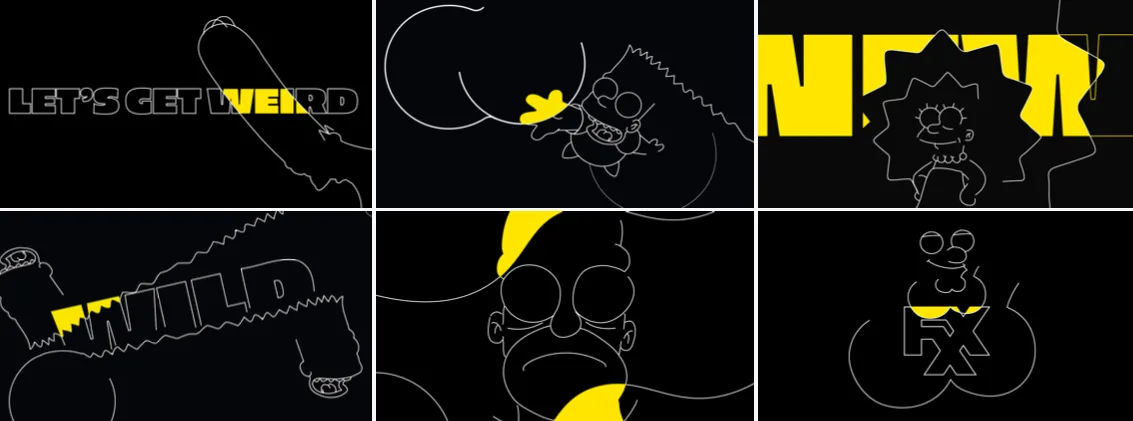


Cai’s approach stood out because not only is her illustrative style highly unique, she deftly incorporates elements into the art direction that reflect the pulpy, edgy and sometimes NSFW elements of the adult animation shows being featured. The FXX team wanted the IDs to feel like an integral part of the brand, and the humorous take was an approach that felt very authentic to FXX and married it with a cheekier and edgier version of itself, perfect for late night.
Carol Cai concepted and art directed the :10-second IDs, all packed to the brim with the subversive humor the original had been ideated on. This humor came through in the initial ideas she explored including a vortex wormhole and a group soak in a hot tub where several of our famous characters can be found. Walking the line between comedic and edgy gave us a fun space to play in with our illustrated style; we used a lot of liquids and some ambiguous close-ups.
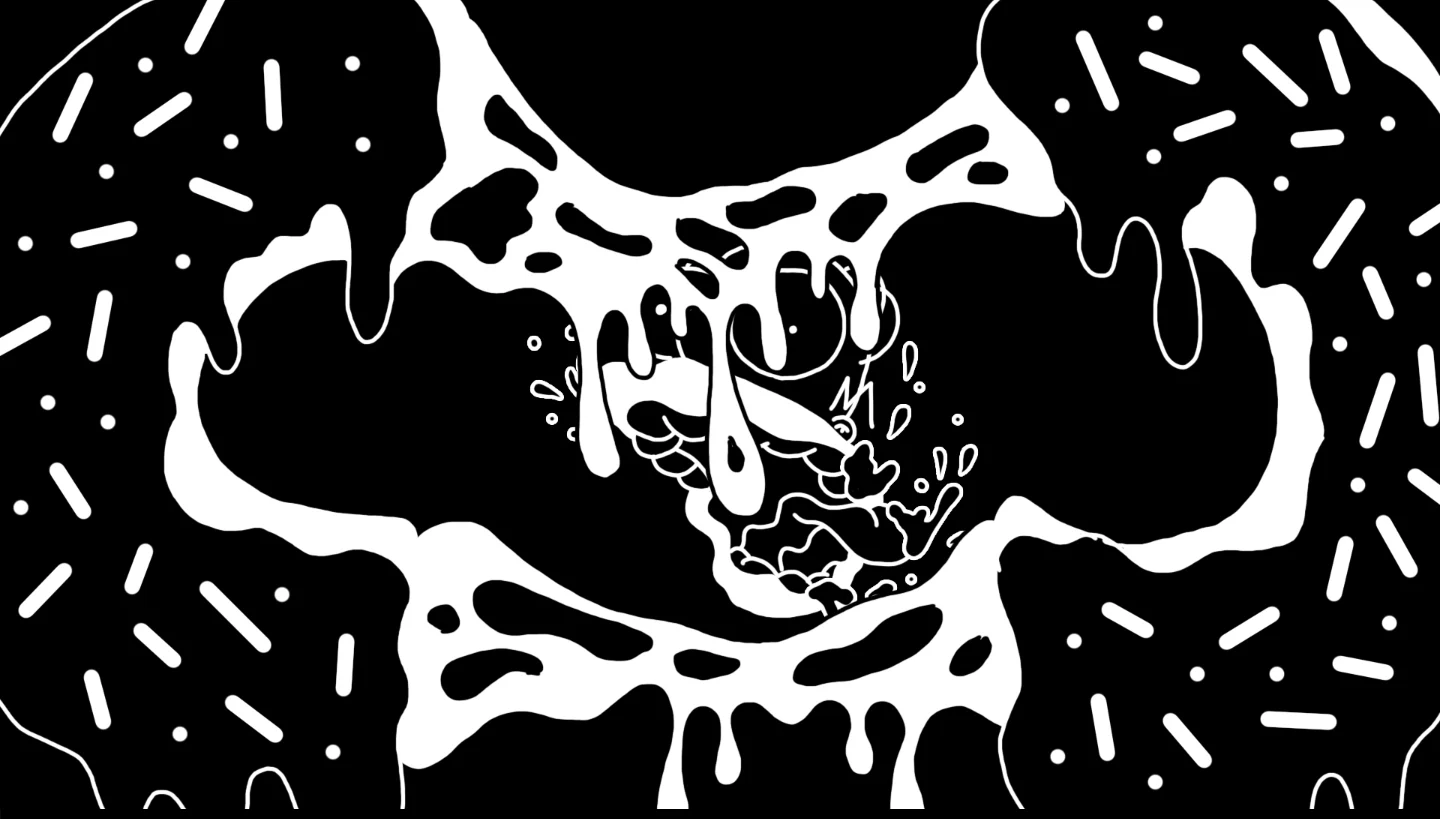
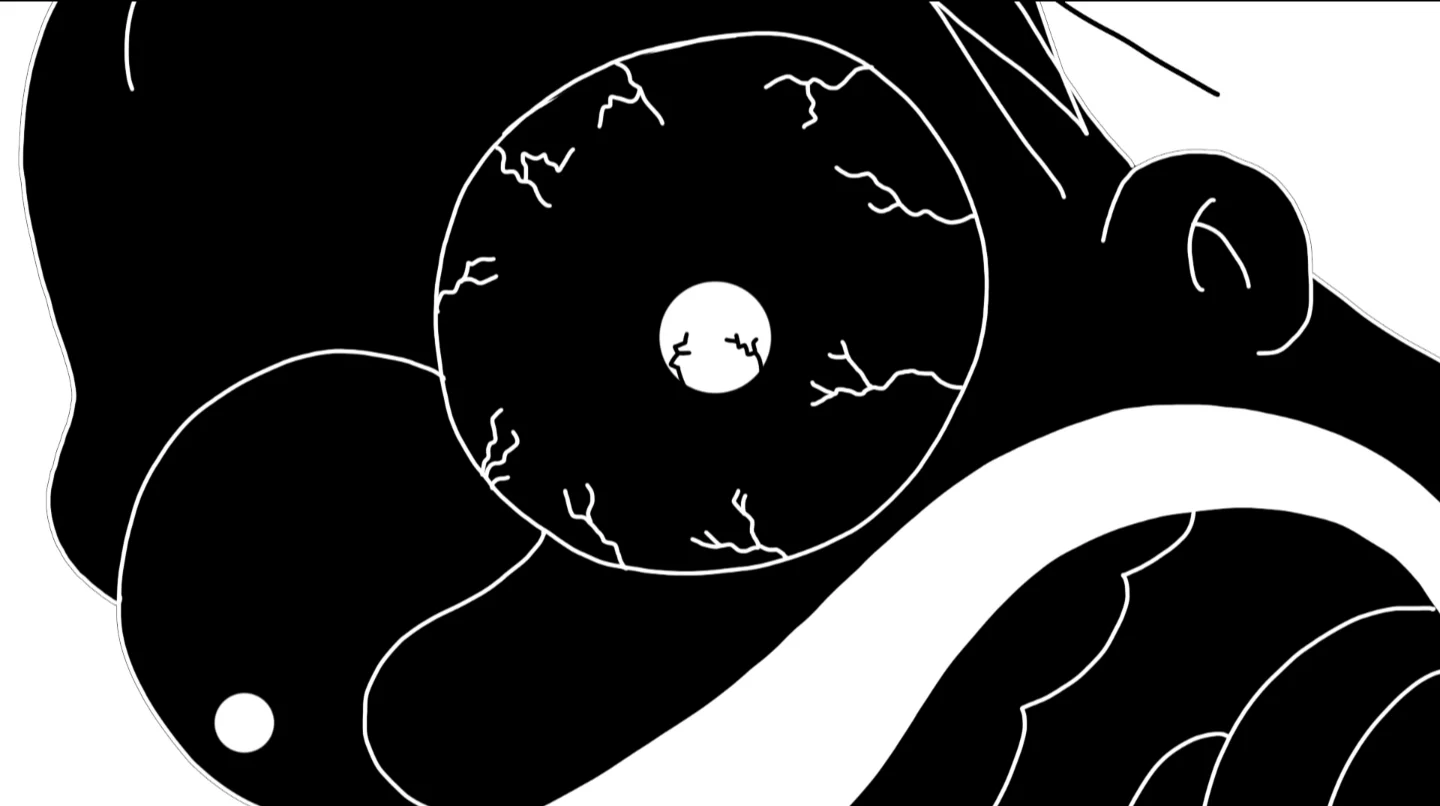
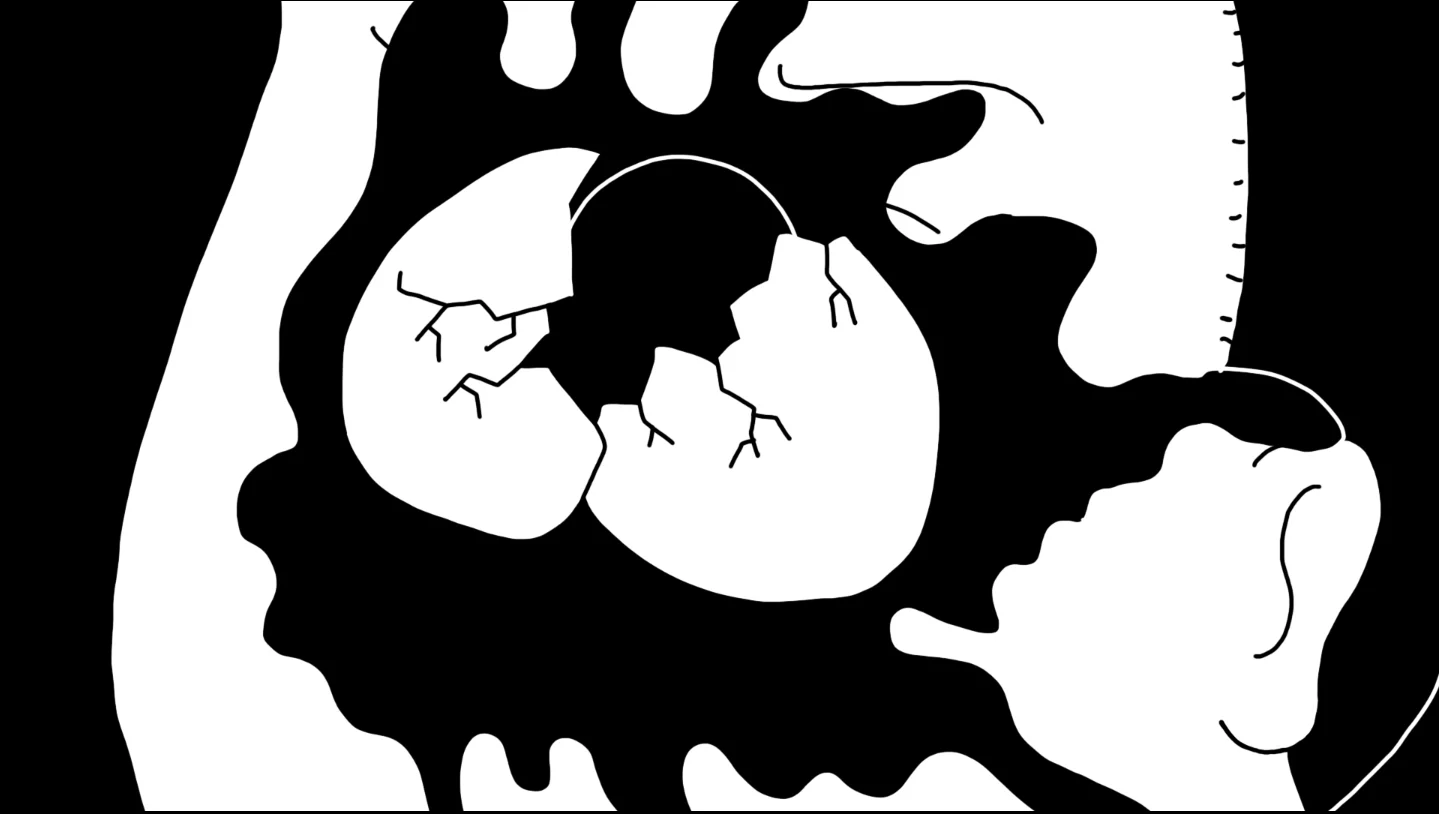


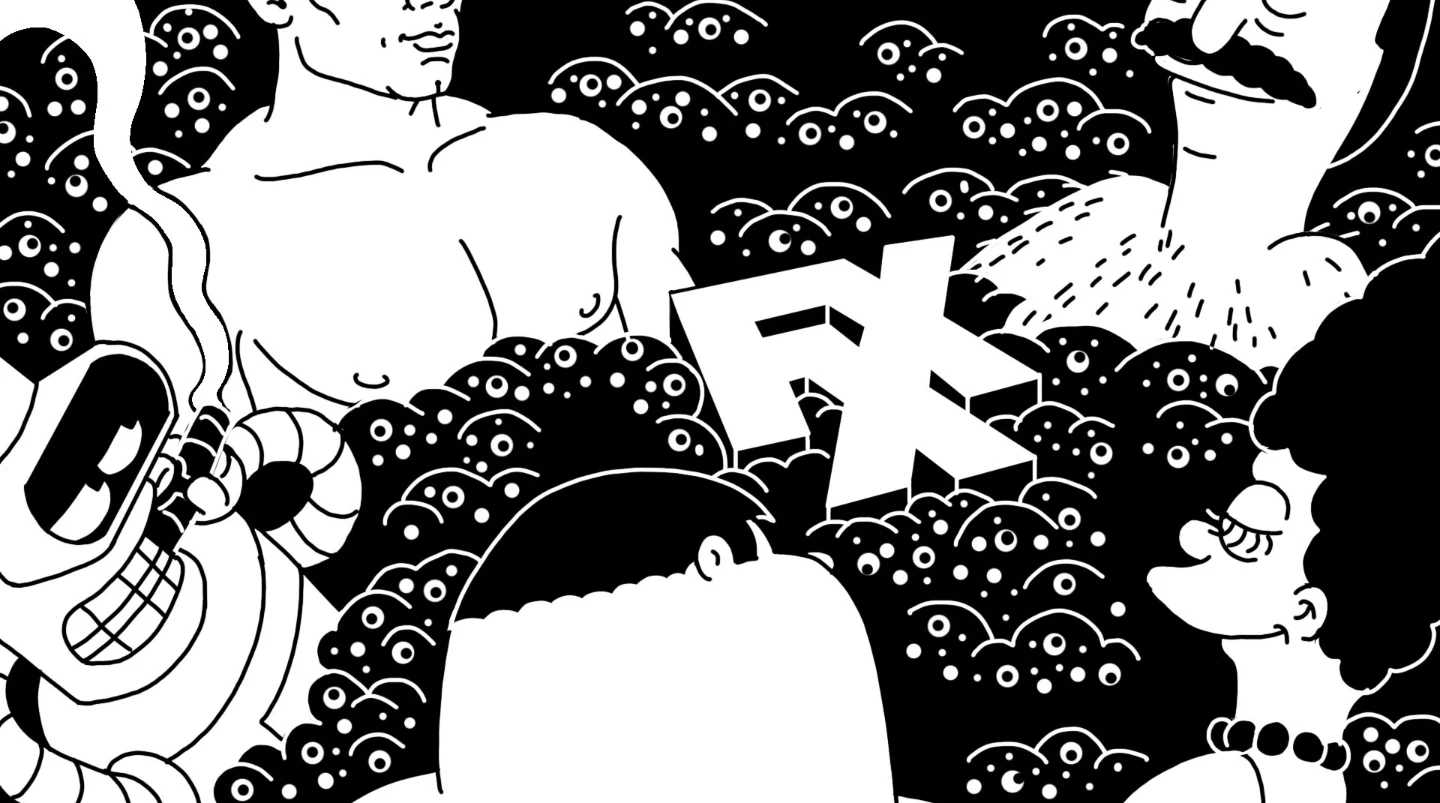
It’s so great as a producer to just let Carol sit with something for a day and then she’ll always come back to me with an amazing idea. I have total trust in her. Her ideas are always really fresh and funny and her illustration style is so specific that both the client and I felt total confidence in her.
level up
The Art of Cel
After prepping the :10-second spots, we then handed them off to Peter Schmidt, an illustrator and cel animator, who began the process of drawing the spots frame by frame. We were able to facilitate this process even more by having Senior 2D Animator Casey Drogin streamline some of the bigger illustrated moments in After Effects. This includes elements like the hot tub bubbles that would be intensively time consuming to draw frame by frame.

The creative process led to many memorable moments, including the sound effects Cai created to accompany the ‘tub buddies’ spot with bubble noises and splashing water. We ended up not doing the final sound mix, but included our post-edits in our package to FXX.

holiday cheer
Family Guy Holiday IDs
We kept our nose to the grindstone drawing all day every day to turn this package around for FXX and were thrilled with how the IDs turned out. The feeling must have been mutual, because before we knew it, we were back to the drawing board, concepting and branding a new block focused on a Family Guy marathon due to debut over the holidays.

The, ‘Avoid Your Family, Family Guy Marathon’ aired over the holidays, but we didn’t want it to feel too specific to Christmas. Snowflakes, Stewie dressed as an elf, gingerbread sweaters…there are elements of holiday cheer but the overall focus of the spots remains on the key Family Guy characters and builds up anticipation of the marathon. We managed another speedy turnaround and these holiday specific IDs hit the air ahead of the 368-episode marathon.
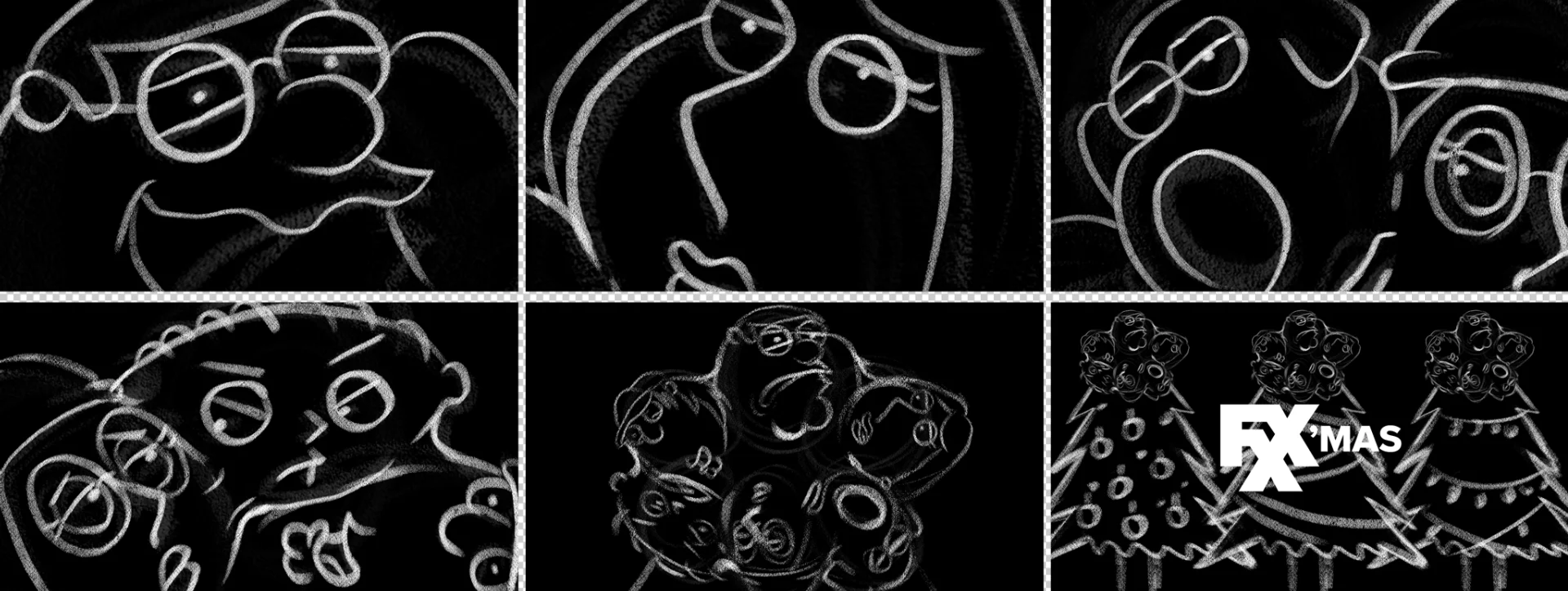
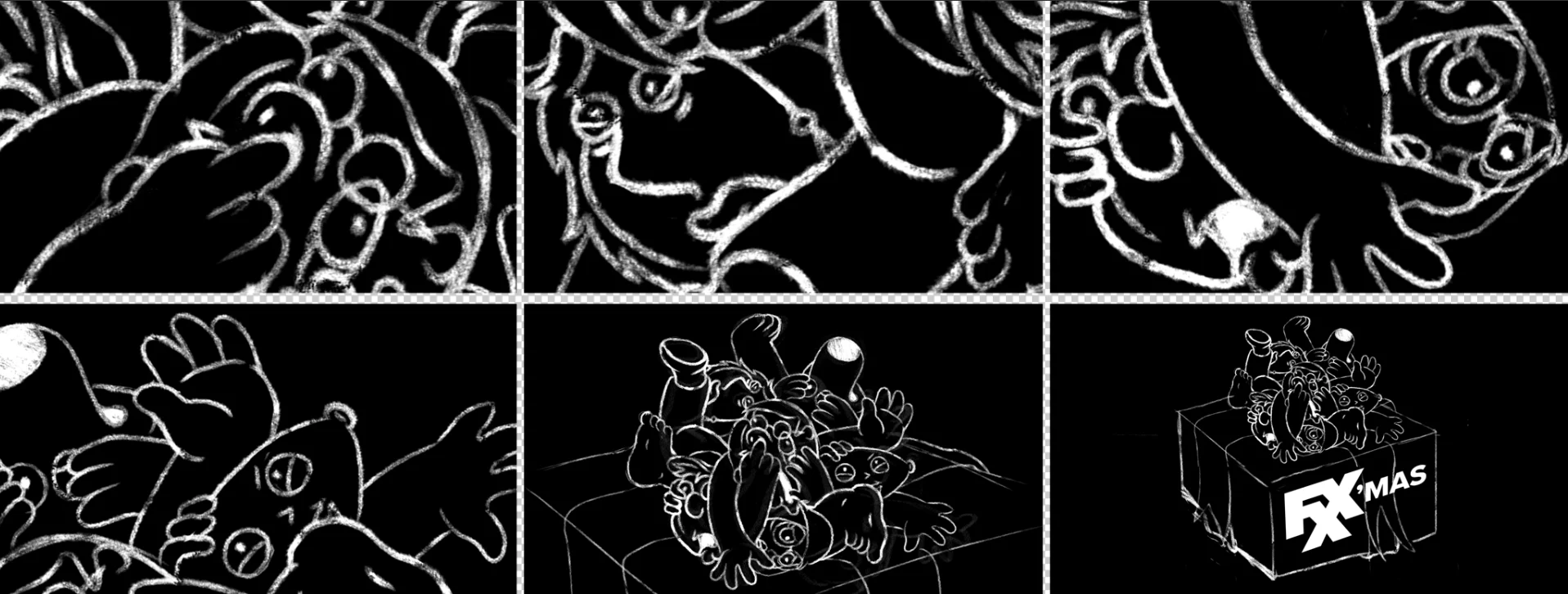
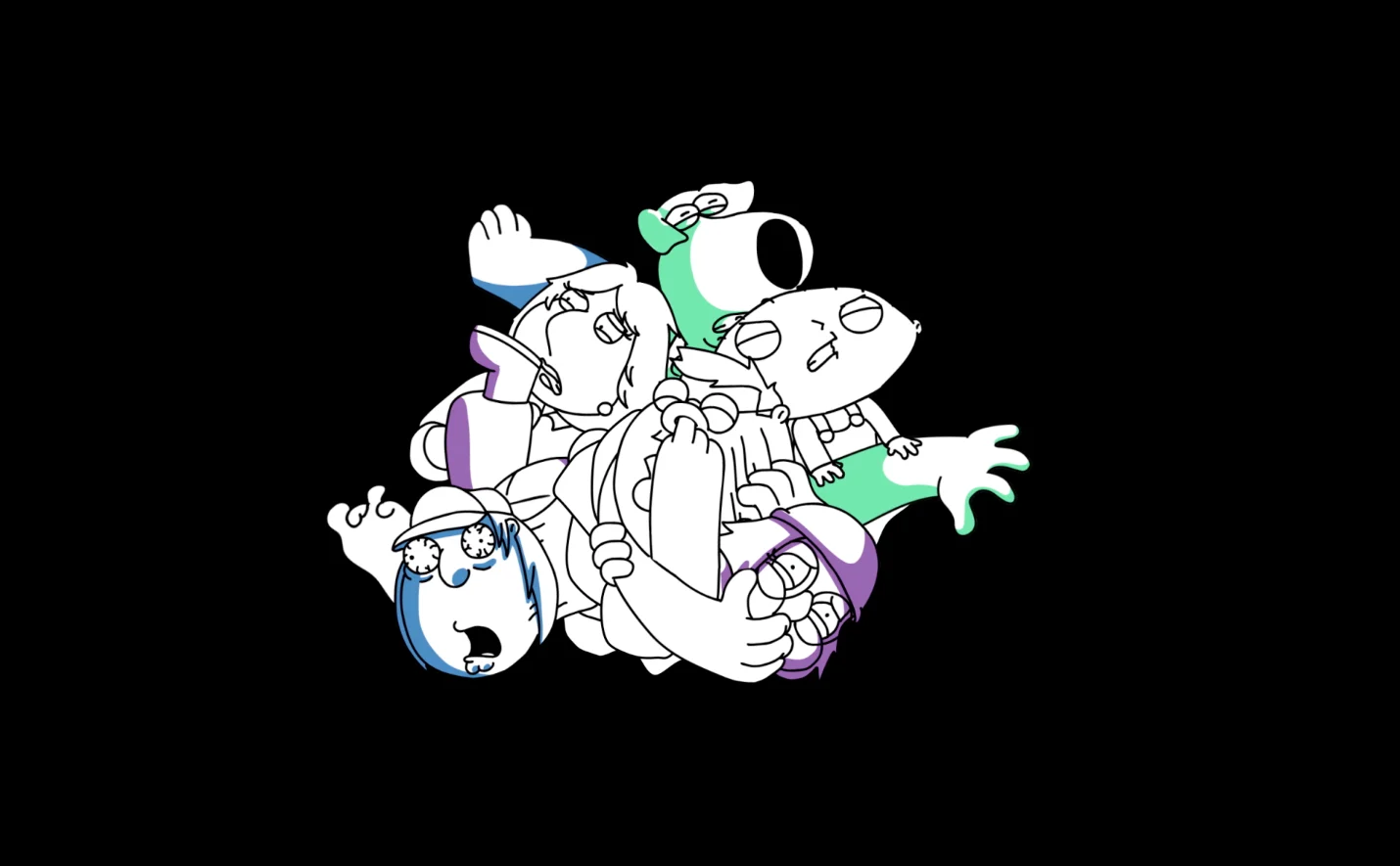
The FXX team was great to work with because they’re so willing to explore a vision and give us the amount of creative freedom to really take things to the next level. We all had fun riffing on ideas back and forth, and their notes helped guide our ideas and keep us on brand AND on air by making sure we just toed the line of risque while keeping the spot’s sense of humor intact. Overall, our team of artists made quick work of the complex process of hand illustrating and then cel animating these four IDs. It's a testament to both the expertise of our artists and a great working relationship with our client that we were able to nail the creative and the humor of the IDs and look forward to the next round!

It’s one thing to make a really great image, it’s another thing completely to build an animated project where you retain both the original intention of the designer while also enabling everything to move as fluidly as possible.
the more you know
BGSTR Artist Spotlight / Casey Drogin
Casey Drogin is our Senior 2D Animator AKA our After Effects wizard. We sat down with him to learn more about his past experiences in design and animation and how it led him to where he is today.
How long have you been at BGSTR?
I’ve been at BigStar for about three years. Prior to that I was a freelance animator and designer.
Do you remember how you got into art?
Yeah, I grew up drawing and making comic books and studying fine art in high school. The high school I went to, I spent half of my day really drawing and illustrating. I had this amazing teacher, Mr. P. He’d taught art in prison and really opened up how I perceived what art was. He’d have you spend a whole week working on something and then the last day tell you to tear it apart and make something totally new with it.
He taught me to never be too perfect and to not use an eraser and to not be afraid to make a mark. So I’ve always tried to bring that into the work that I do, and here at BigStar with Josh and our designers it’s been really useful.

How so?
I can be really messy really quickly in the art that I make, so everybody around me here is great at reining that style back and making sure that it’s a controlled mess. What’s been great about BigStar, and in the professional world in general, is finding the balance between what I loved about just making art growing up and then learning to refine that and be more organized and channel that into something that’s polished.
Tell us about your role at BGSTR?
I started off as a freelance animator about 6 years prior to joining the staff, so I’ve been working with Josh and the team here for a long time. As a freelancer, I became the go-to for when we had a project where we needed to make something feel really in-camera. On staff now, I have a deeper role in a number of projects at once. I moved from banging out a bunch of animation on a project to really getting to oversee the edit of the spot- the sound design, the pipeline and how all the pieces are going to fit together.

What tools and techniques are you using?
I’m primarily working in After Effects for I’d say 80% of the time. The rest of the time, I’m probably doing hand drawn animation, which I’d started doing when I was 17, so I always enjoy that.
I’ve always enjoyed the different techniques out there- rough and glitchy, handmade, hand drawn or 3D. I don’t have a preference, but I enjoy any project where I get to learn something new or I’m working with someone whose brain I can pick.
Tell me about what inspires you?
I grew up painting and drawing and illustrating, and my mom really got me. She and I watched a lot of horror movies together, things like The Shining or Godzilla. I think it made me gravitate toward the idea that animation is a lot bigger than Disney and Pixar and Saturday morning cartoons. It made me inspired by animation as a technique to tell stories in a more serious way.
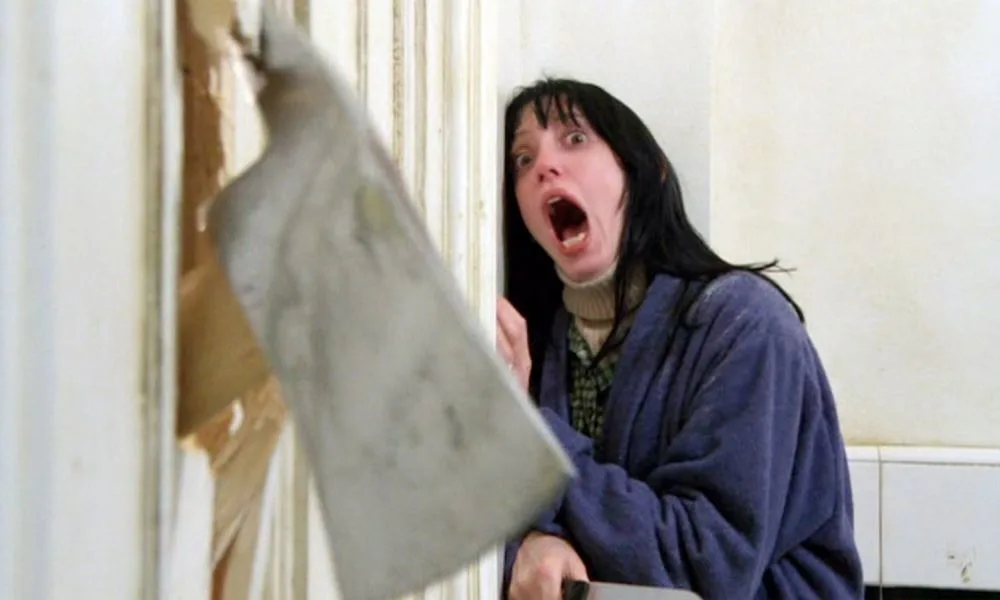
Incidentally, both of my parents are journalists– my dad was a foreign correspondent and my mom did a lot of work with CNN in the 80s and 90s. BigStar has a huge documentary portfolio and that’s always been really important to me. Using animation to push mature content and serious stories in a way that’s more than just cartoon characters is something that’s contextually foundational to my interest in animation.
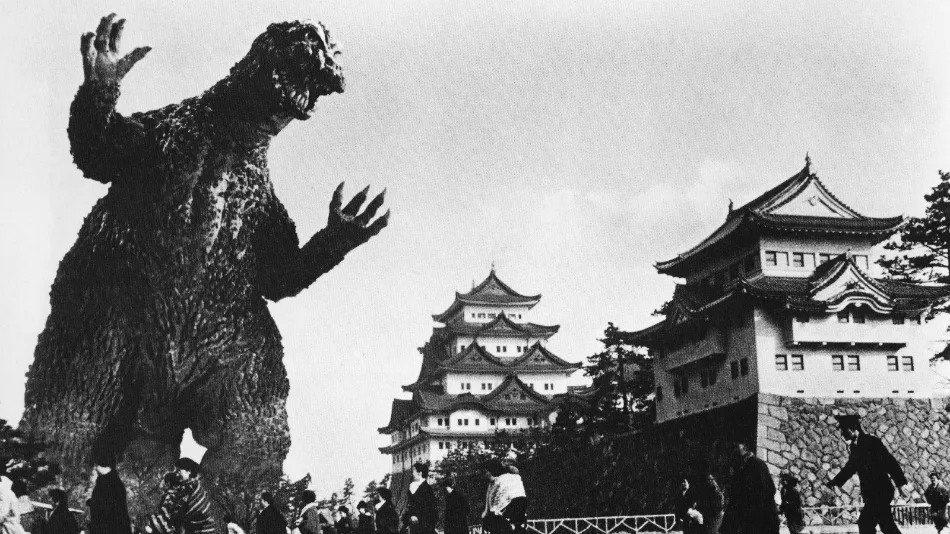
How do you determine the look for a particular project? When do you feel like you’re at your best?
I rely a lot on the amazing team at BigStar- working with Ross Henderson, John Leamy, Josh Norton and Carol Cai- they’re all fabulous designers. Where do I fit into that? Well, I think I can design, but they have an eye for making stuff. The longer I work at BigStar, the better my eye is for seeing design and how it’s going to move. Starting to think in motion as opposed to thinking in still images.
I think I feel like I’m at my best now, trusting the designers while also knowing the animation process well enough to also know what I need to ask for me to do my job and make the process as seamless as possible.

What types of projects excite you the most?
The ones where I think the ultimate goal for us and the client is, we want this to look as dope as possible. Josh uses this phrase, “we’re rippin’” to kind of describe when everybody is clicking and we’re all just taking these designs and using the motion to just like rip and tear. From there, everything feels really kinetic from a creation standpoint.
We want this to look as dope as possible.
Artist Spotlight / Casey Drogin (continued)
I hear you're also a teacher?
Yes, I just wrapped my fourth year at Brooklyn College where I teach two classes at the Feirstein Graduate School for Cinema. One of them is an After Effects class that’s really an introductory class to the principles of compositing, and the other class is a digital cel animation class. It’s been a lot of work, but it’s also incredibly rewarding. All of my students work so hard in class and it makes me work really hard for them. It’s nice to be able to share information about techniques and software that I get really excited by and watch it click for them over the course of a semester.
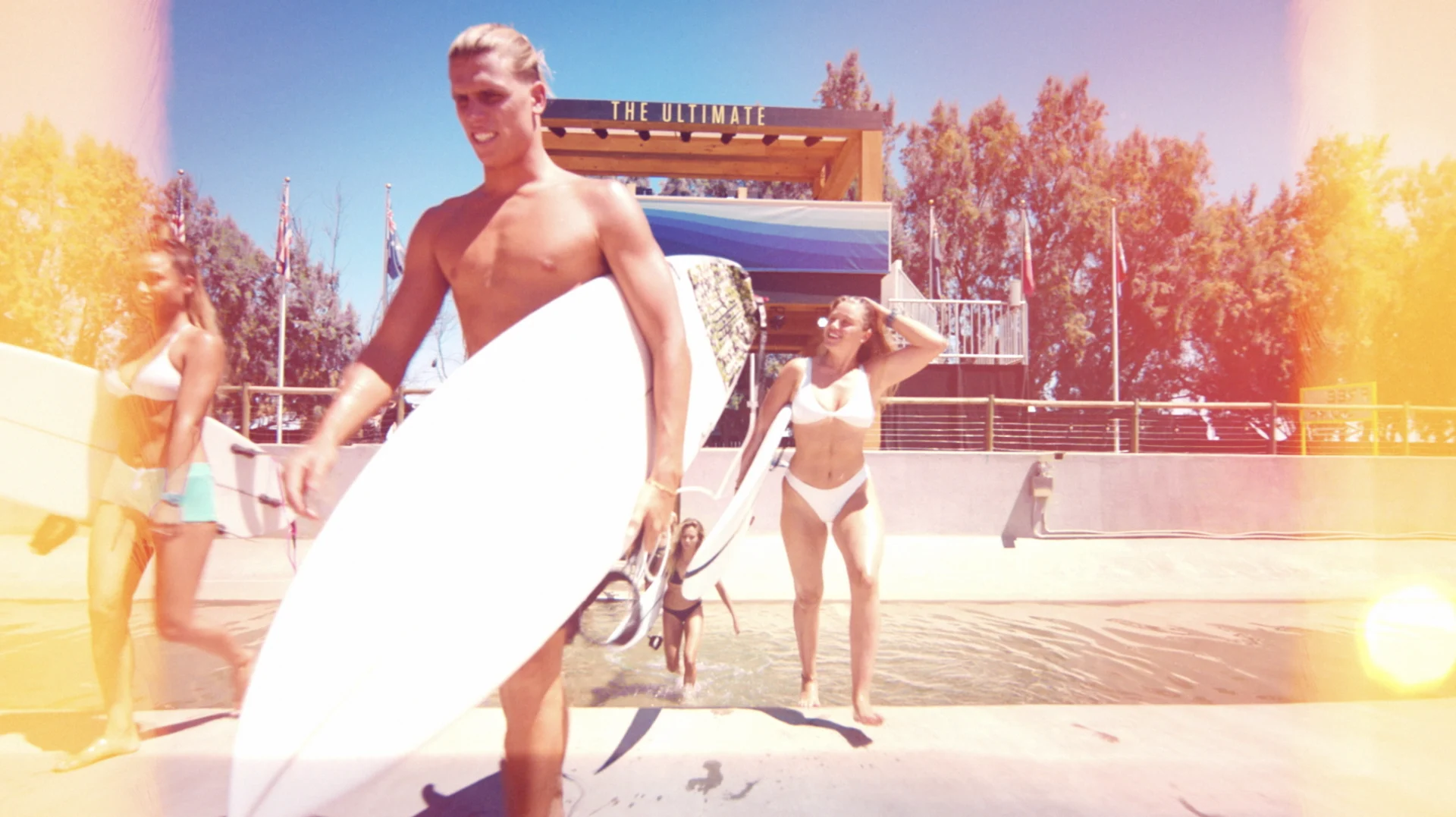
Anything else you want to add?
I just feel really lucky that I get to do what I do. I get to make things for a living, and I was making things when I was five and twelve years old, and still now. I freelanced for a long time in New York and saw a lot of different studios and different projects, and the thing that I really enjoy about BigStar and working with Josh is that he has the same level of commitment to quality and maintains a healthy amount of dissatisfaction with the work until it’s really good. Working here has made me become a better artist and teammate.
let's get into it
Cel Animation / Technique Primer
Cel is an animation technique in which the creation of 2D drawings on sheets of transparent plastic is done by hand. These plastic sheets are called cels (from the celluloid material they are made of).
The Art of Cel - according to BGSTR:
The process of drawing animation frame by frame. Nowadays it's usually an anachronistic term because we don't actually draw on cel sheets anymore. However, the same general process remains the same despite the advances in available digital tools.
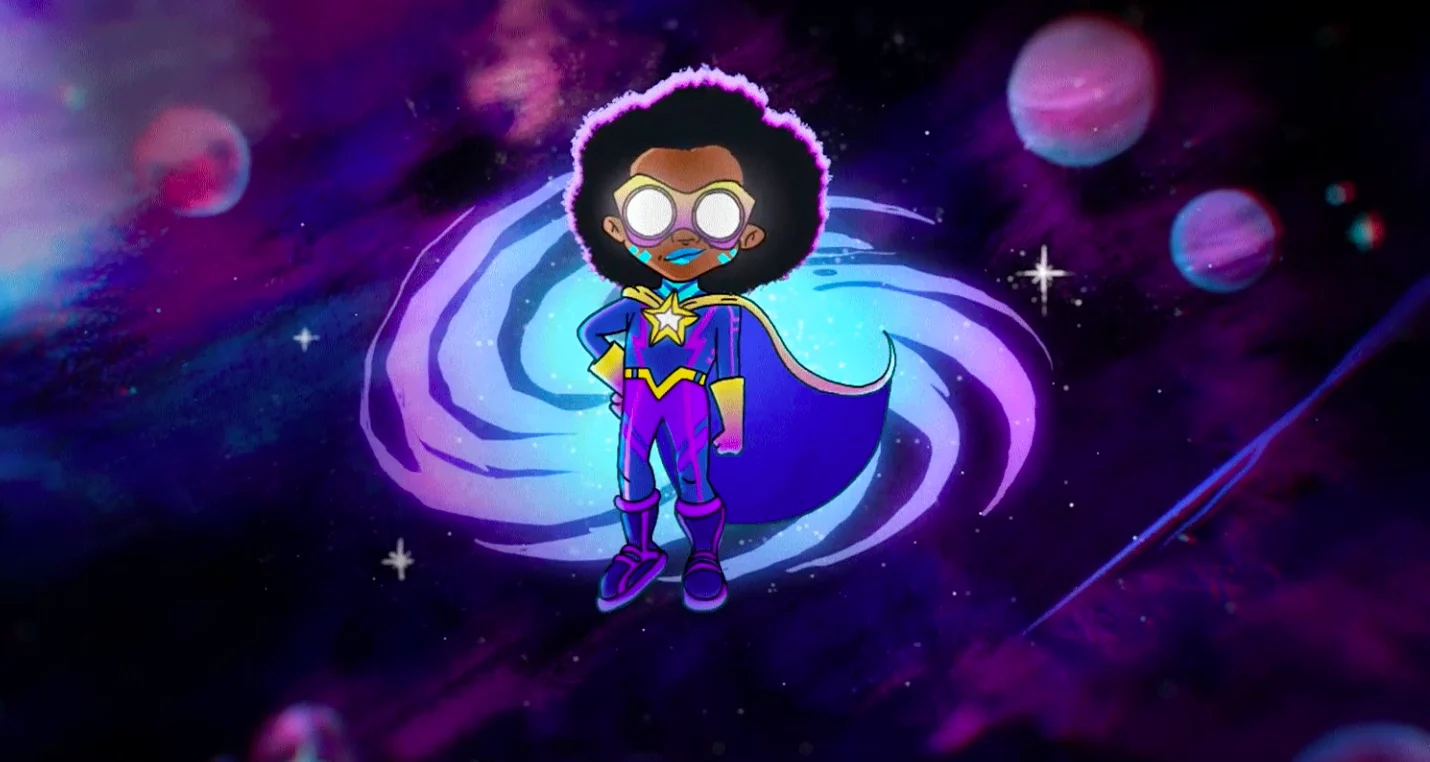
Why is Cel Animation still relevant?
The principles of squash, stretch, timing and spacing are always relevant - whether we're drawing something frame by frame or animating a 3D piece of typography. A good understanding of animation principles will show up in any animation technique or piece of software.
How does Cel Animation tie into BGSTR’s signature style?
BGSTR has a really physical, tactile style; this starts from design all the way through animation and compositing. Even if we aren't using traditional cel animation on a project, we're always pushing to find ways to make our work feel handmade and have every frame considered.
See case studies: FXX, Walking Dead, Soul of a Nation, Preacher , What We Do in the Shadows
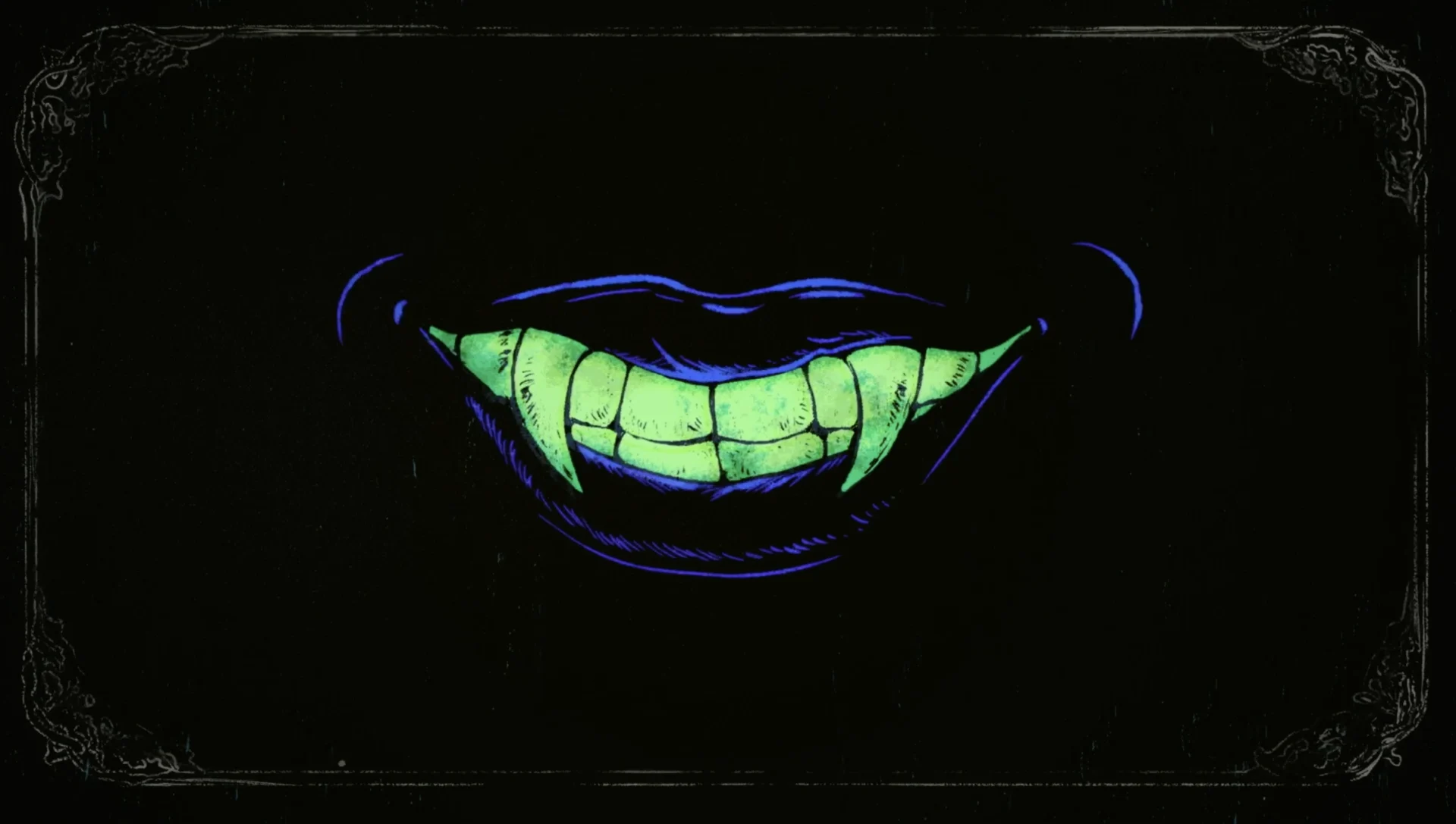
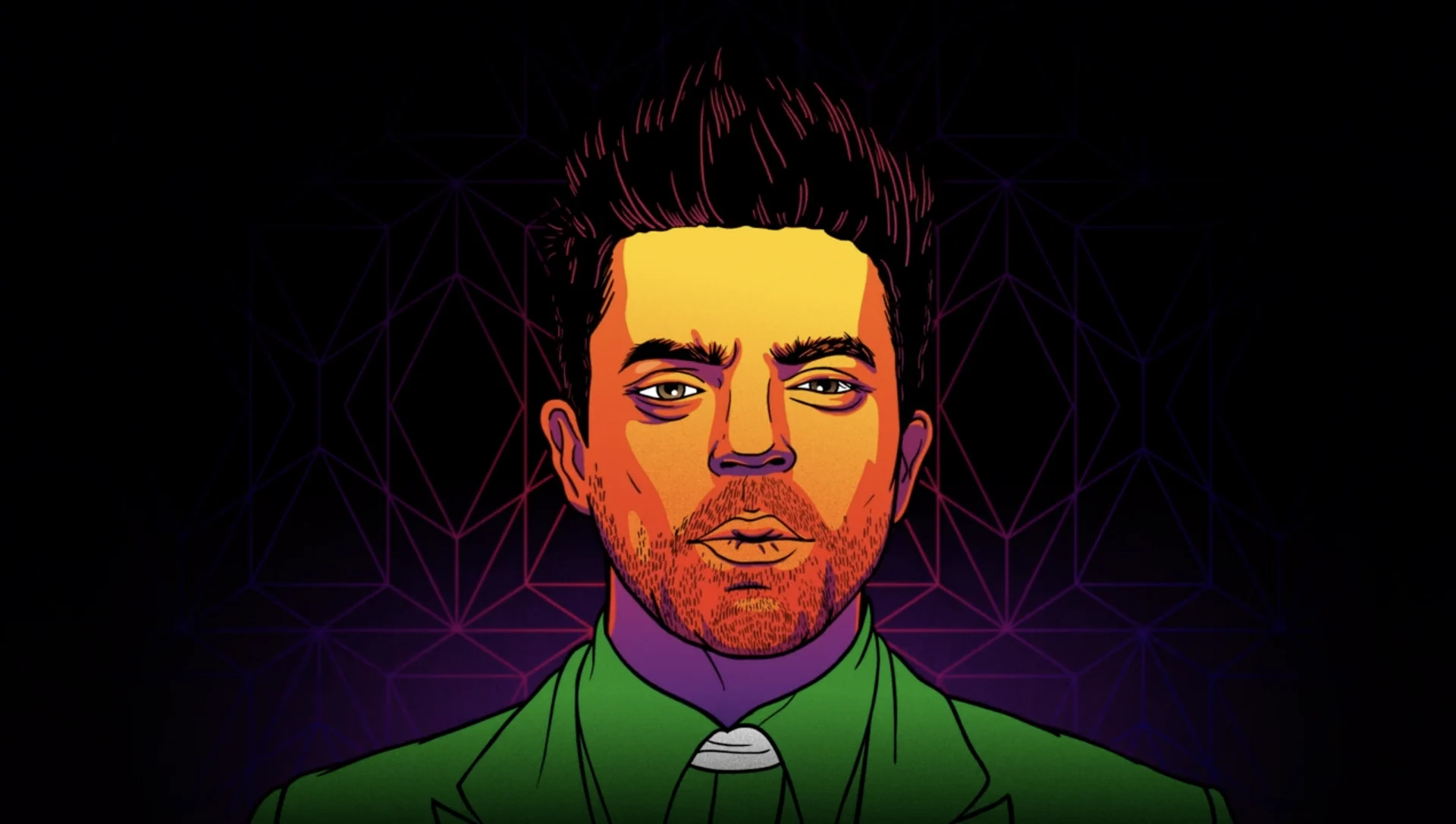
Props where props are due
Credits
Shuot out to the BGSTR team who worked on all of these incredible projects!
FXX Network IDs
Executive Creative Director Josh NortonExecutive Vice President, Executive Producer Carson HoodProducer Kristen PritchettArt Director, Designer/Illustrator Carol CaiCel Animators Peter L. Schmidt, Efrain Cintron, Casey Drogin, Carol CaiAE Animation Casey Drogin
FXX Holiday IDs
Executive Creative Director Josh NortonExecutive Vice President, Executive Producer Carson HoodProducer Kristen PritchettArt Director, Designer/Illustrator Carol CaiCel Animation Peter Schmidt, Jane Wu, Casey Drogin, Carol CaiAE Animation Casey Drogin, Jane Wu, Carol Cai
Afrofuturism
Founder, Executive Creative Director Josh NortonExecutive Vice President, Executive Producer Carson HoodProducer Kristen PritchettArt Director Jane WuDesign Carol CaiAnimators Casey Drogin, Blake Patrick, Jane Wu
The Walking Dead, S10 B Promo
Executive Creative Director Josh NortonCreative Director John LeamyHead of Production Virgil ConklinAnimators Casey Drogin, Mark Thompson3D Animators Conner O'Brien, Nick Donatelli
Westworld S3 Promo
Executive Creative Director Josh NortonExecutive Vice President, Executive Producer Carson HoodHead of Production Virgil ConklinLead Animator Casey DroginAnimator Alec IselinDesigner Ann Kruetzkamp
Ultimate Surfer
Executive Creative Director Josh NortonExecutive Vice President, Executive Producer Carson HoodHead of Production Virgil ConklinLead Designer Josh NortonDesigner Doug ChangAnimation Chang Xu, Casey Drogin
Preacher - "Face Face"
Production Company BigstarDirector Josh NortonExecutive Vice President, Executive Producer Carson HoodHead of Production Virgil ConklinDesign Carol CaiAnimators Jane Wu, Peter Ahern, Mavis Huang, Efrain Clinton, Will Pitas, Blake PatrickCompositors Alec Iselin, Liu ChialungEditor Jessica LedouxAudio Plush